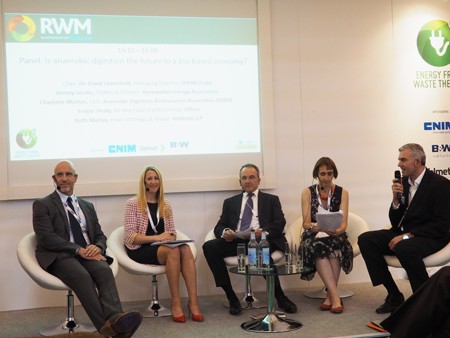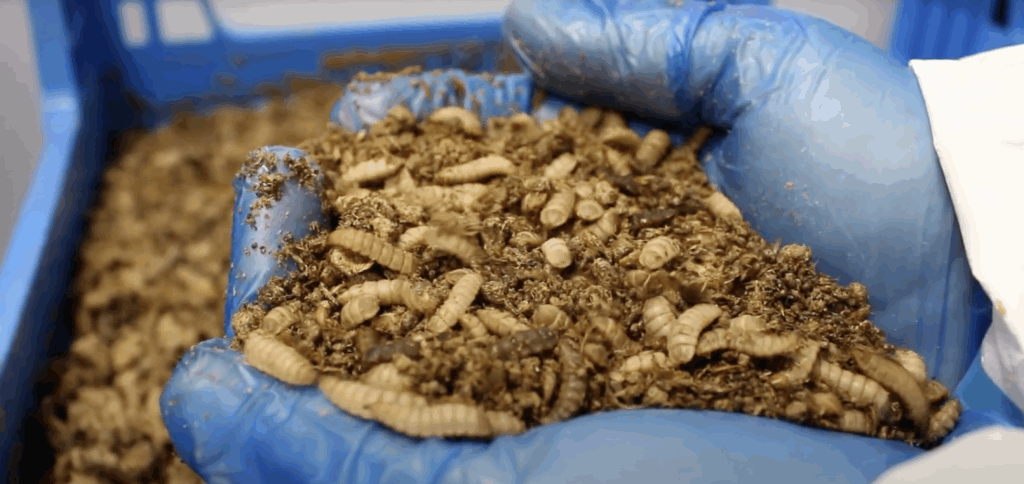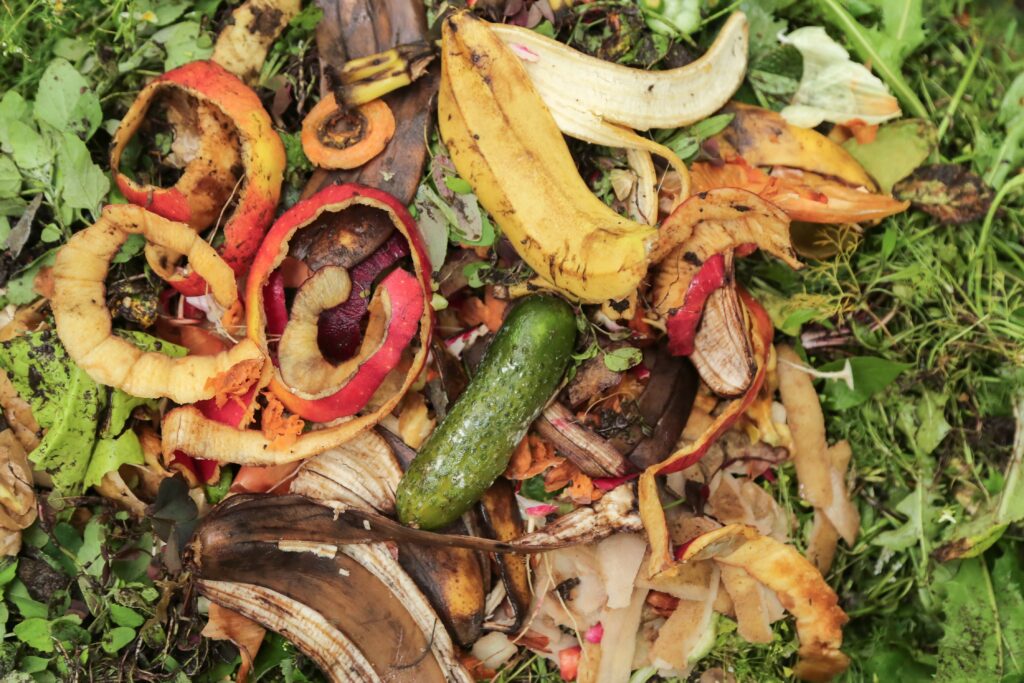
At the closing session of RWMS’s first day at the Energy from Waste Theatre (13 September), the panellists emphasised the need to demonstrate the value of AD to local authorities as well as to the government.
The panel was made up of Jeremy Jacobs, technical director at the Renewable Energy Association, Charlotte Morton, chief executive at ADBA, Fergus Healy, AD and food waste director at Olleco and Ruth Murray, head of energy & waste at Ashfords LLP. David Greenfield, managing director at SOENECS, chaired the session.
‘Competitive’
Mr Jacobs said that for local authorities “it’s all about delivering value to the householder,” to which Mr Healy added that “we shouldn’t forget that in terms of bang for your buck AD is pretty competitive”.
Mr Healey continued that the benefits of AD are still not widely understood. Currently, of the 10 million tonnes of food waste produced in the UK each year, 7 million tonnes is still being processed in a way that is lower down the waste hierarchy than AD.
Mr Healy said: “There has been a myth— which we need to dispel— that there is no economic benefit to food waste collections.”
Local authorities
However, the panel agreed that it needs to be acknowledged that the local authority business case may differ from the UK-wide business case— something that should be addressed by the government with appropriate incentives and compensation.
On how the sector can work to assist local government, Mr Jacobs said: “Local authorities don’t have a huge amount of money so we need a viable mechanism to capture this [food waste] resource.”
Mr Healy agreed, adding that there is “best practice that can be shared between local authorities” by those who have successfully implemented schemes to maximise the cost effectiveness.
Potential
The panel also discussed the AD market and the decrease of government incentives over the last 12 months, which have been accompanied by a deflation in gate fee prices— a stark contrast to the significant growth the sector experienced over the last few years.
Mrs Morton said “small scale AD is no longer viable, the FIT is no longer viable” adding that “we as an industry are very much prevented from delivering anywhere near our full potential”.
Mrs Morton said that while the government has committed to the last carbon budget, “I hope it’s not going to take the rest of this administration before we see something happen.
She added: “If we were to take away the subsidies that are given to the oil and gas industry and had a carbon tax that properly reflected the impact that the fossil fuel industry is having on our climate, then we wouldn’t be the ones having to justify why we get a subsidy. It should be entirely the other way.”







Subscribe for free